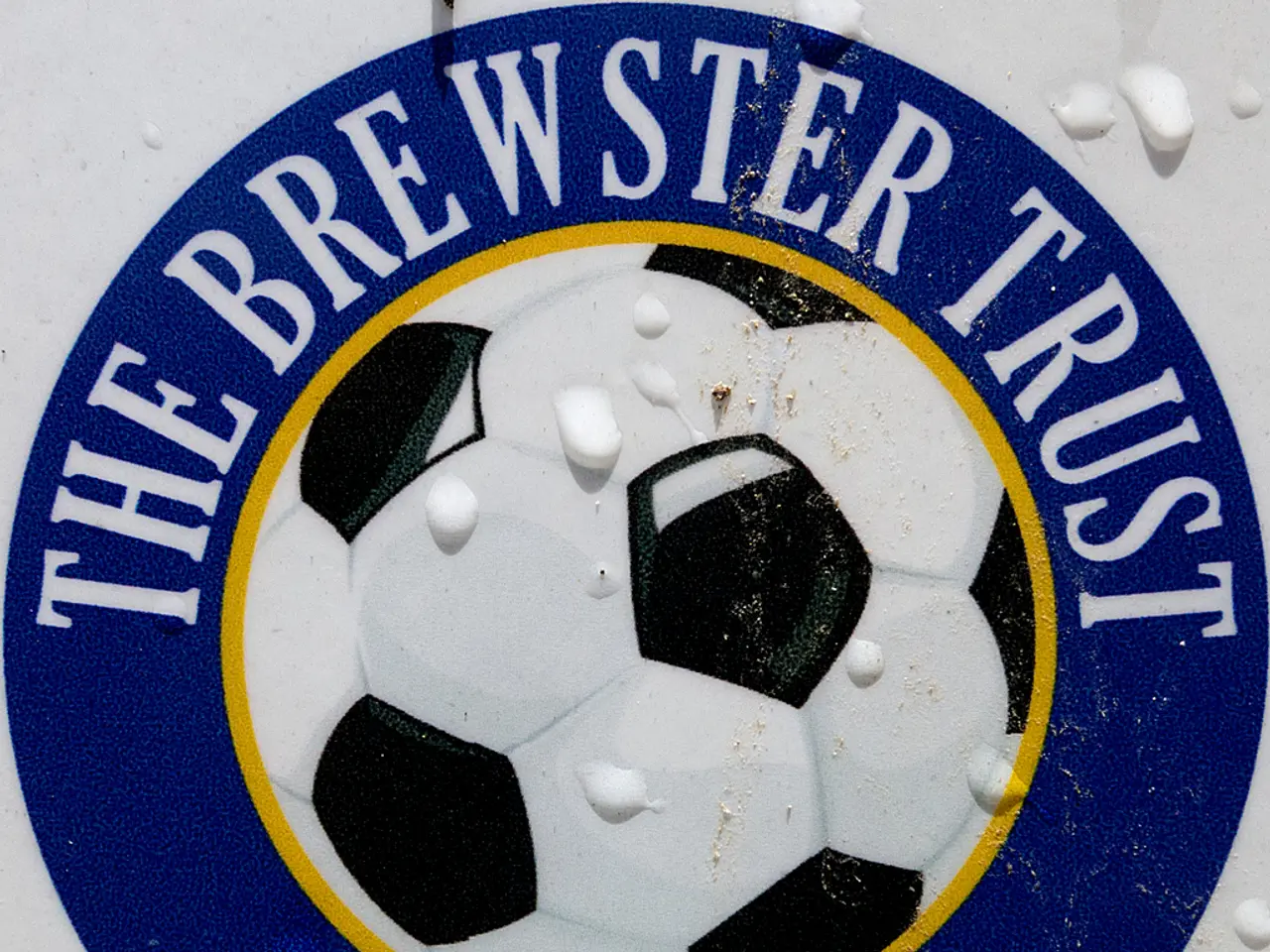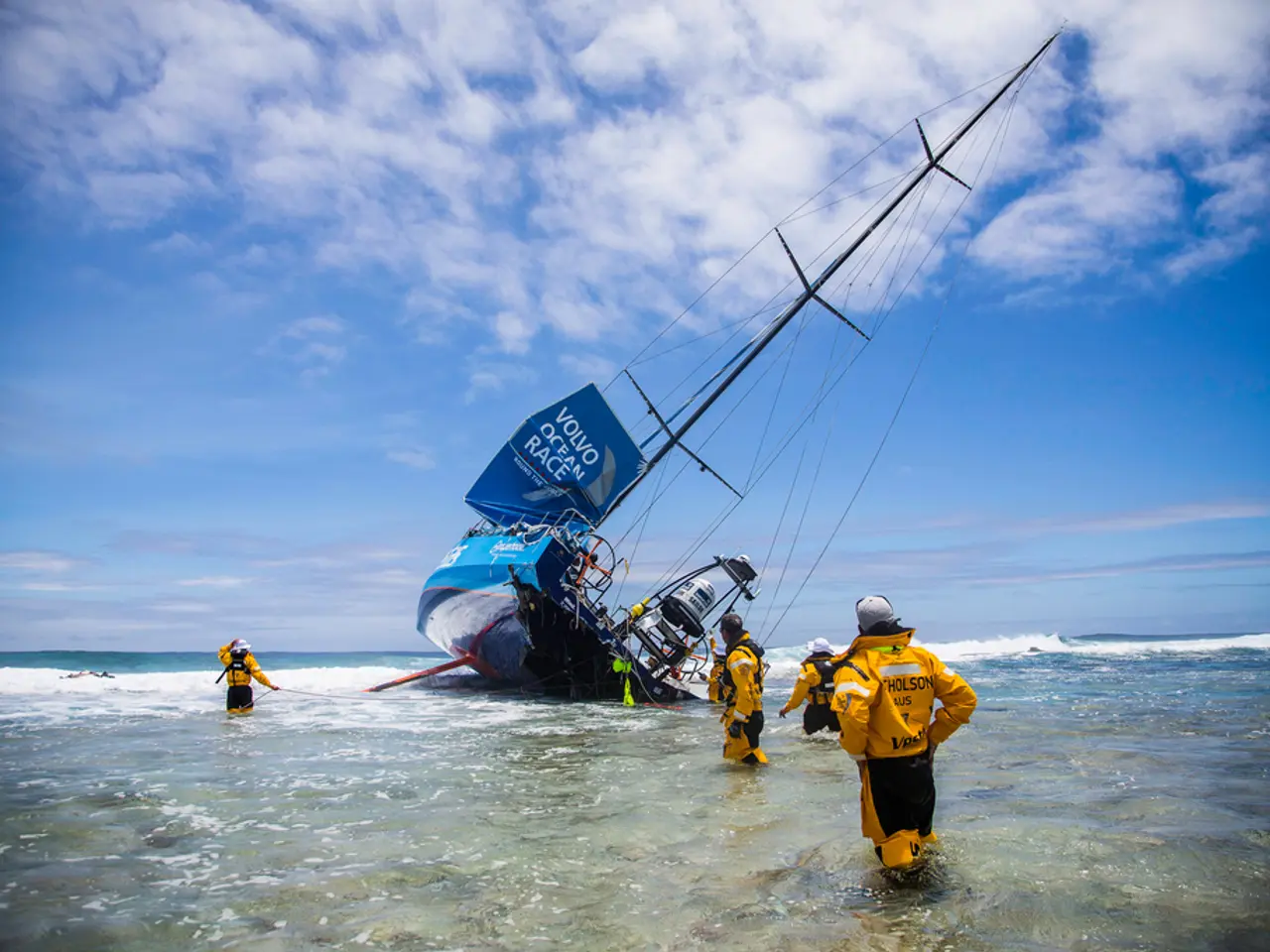College Football Player Sues National Collegiate Athletic Association Regarding Eligibility, with Riley Involved Amidst Controversy
In a significant move, USC football player DaJuanye "DJ" Wingfield has filed an antitrust lawsuit against the NCAA, challenging the organisation's five-year eligibility rule. The rule, which limits athletes to four seasons of intercollegiate competition, is at the heart of Wingfield's claim that it unlawfully restricts college athlete eligibility.
Wingfield, a 24-year-old offensive lineman, asserts that the rule unfairly penalises him for circumstances including attending a junior college and pandemic disruptions, which interrupted and extended his playing timeline beyond five years. He argues that the rule denies him a "once-in-a-lifetime" NIL (Name, Image, Likeness) opportunity and prevents him from enhancing his college career at USC.
The lawsuit, filed in a Los Angeles federal district court and assigned to U.S. District Judge Dolly M. Gee, is part of a broader legal challenge involving other players—such as Jagger Giles and Kaedin Robinson—who also seek relief from the NCAA's five-year limit, claiming it violates federal antitrust laws by unreasonably restricting athlete mobility and opportunities.
If Wingfield’s challenge and the related lawsuits succeed, they could force the NCAA to modify or abolish its five-year eligibility rule, thereby allowing athletes longer or more flexible timelines to complete their collegiate sports careers. This could reshape NCAA governance, affecting how eligibility is determined, especially for transfer athletes and those impacted by extraordinary circumstances like the COVID-19 pandemic.
The decision may increase legal scrutiny on NCAA's eligibility and transfer policies, potentially weakening NCAA’s control over athlete participation windows. For programs like USC, the outcome directly impacts roster depth and competitive balance. Wingfield’s eligibility affects USC’s offensive line strength; if denied, USC must adjust its lineup, possibly employing less experienced players.
The NCAA argues that its eligibility rules promote college sports as a unique and fan-appealing brand played by college athletes, whose eligibility is tied in part to their academic progress and whose relationship with their universities is meaningfully different from that between a minor-league player and their team or league. The association also claims that one player's eligibility lacks market impact since a player who leaves a college is simply replaced by another one who enters that college.
However, Wingfield claims that the denial of a waiver by the NCAA would cause him to lose a $210,000 NIL deal that is contingent on him playing for USC. The NCAA has defeated motions for injunctions brought by several athletes who seek to play after exhausting their eligibility.
This article is related to a story about four players suing the NCAA for eligibility, using Diego Pavia's legal playbook. The upcoming federal court hearing scheduled for August 18, 2025, will likely consolidate multiple similar lawsuits. The NCAA believes partnering with Congress is essential to address the conflicting rulings on eligibility cases and is making changes to modernize college sports.
[1] https://www.espn.com/college-football/story//id/35831861/usc-offensive-lineman-dj-wingfield-sues-ncaa-eligibility [2] https://www.usatoday.com/story/sports/college/2023/05/01/ncaa-lawsuit-dj-wingfield-sues-ncaa-over-eligibility-rules/67948450007/ [3] https://www.si.com/college/2023/05/02/dj-wingfield-sues-ncaa-eligibility-lawsuit-five-year-rule [4] https://www.usatoday.com/story/sports/ncaaf/2023/05/01/ncaa-lawsuit-dj-wingfield-sues-ncaa-over-eligibility-rules/67948450007/ [5] https://www.espn.com/college-football/story//id/35831861/usc-offensive-lineman-dj-wingfield-sues-ncaa-eligibility
- In his lawsuit, DJ Wingfield, a USC football player, argues that the NCAA's five-year eligibility rule restricts his potential NIL (Name, Image, Likeness) opportunities and denies him a chance to enhance his college career.
- The sports analysis of DJ Wingfield's lawsuit reveals that if the rule is modified or abolished, it could impact roster depth and competitive balance for programs like USC, particularly affecting positions like the offensive line, as seen in Wingfield's eligibility case.






